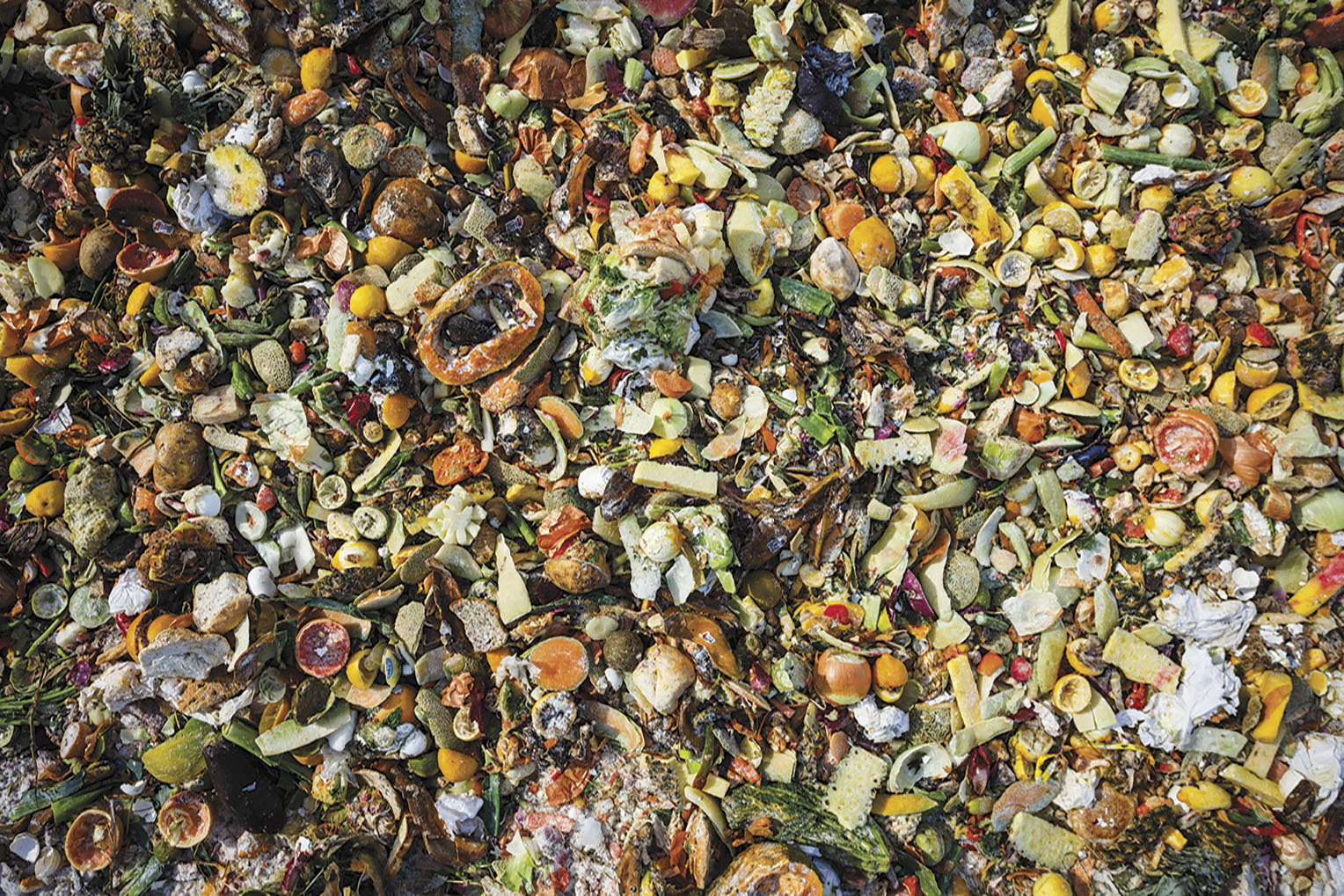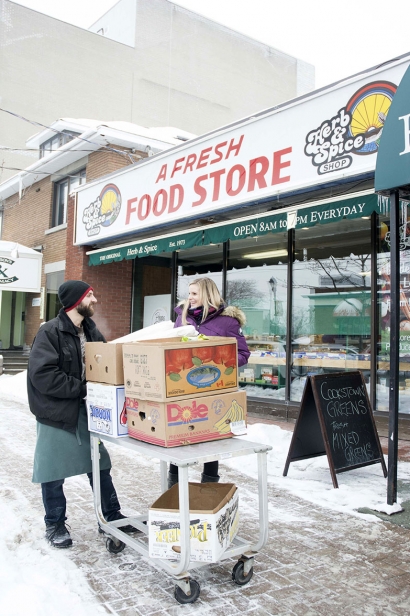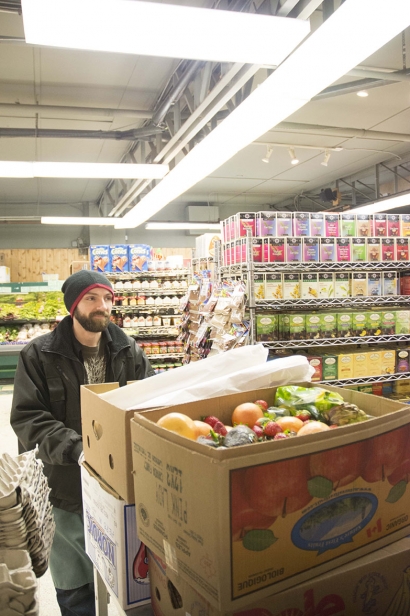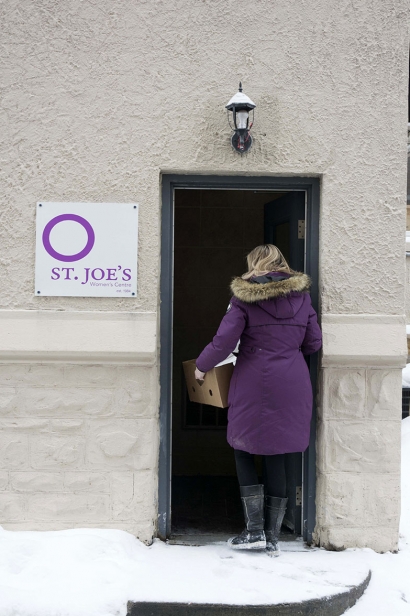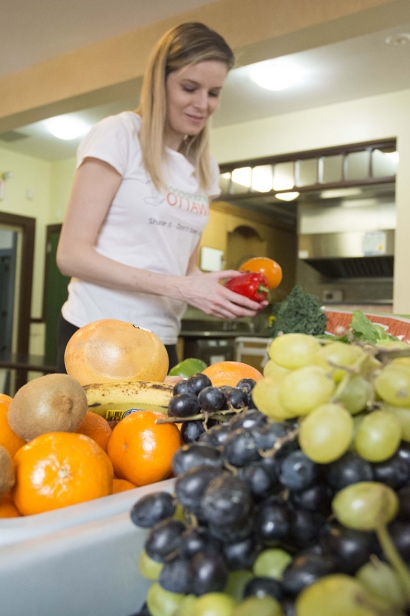Share It, Don't Toss It
The next time you do your groceries, keep $30 in mind. That’s about how much money you are about to waste. And the worst part? It’s not the first time. Each week, Canadians on average will spend $28 on food they won’t eat, rounding out a whopping annual total of $1456 that we stuff into our garbage bins instead of our bellies.
That’s a huge waste — one that Foodsharing Ottawa is hoping to end with a simple mission and motto: Share it — don’t toss it.
“When we talk about food waste,” says Carolin Ross, who founded Foodsharing Ottawa in 2016, “we’re talking about fruits and vegetables that are still perfectly fine to eat.”
Through the efforts of about 20 active volunteers, the Foodsharing team is offering a second-chance for unwanted goods, by partnering with local businesses — restaurants, grocery stores and retailers — who often find themselves stuck with scores of products destined to be tossed.
“Sometimes the stores throw products out just because the new delivery came and they need space on their shelves. Sometimes the labels are printed incorrectly, which means it goes into the trash. It doesn't mean they are spoiled or don't taste good anymore.”
Foodsharing Ottawa currently relies on a few key partners for the bulk of food waste donations: The Original Herb & Spice Shop (on Wellington Avenue) and Kardish Health Food Centres, COBS Bread Bakery in Barrhaven. They send volunteers out to collect boxes of food from the groceries every couple of weeks. The food, mostly dry goods that have passed their best-before dates, are delivered to charities, which then issue a tax receipt to the donating business.
“You could think of us as a link between businesses and charities,” says Ross, who adds that the Foodsharing Ottawa volunteers will pick up, sort and deliver any and all donations. “We take care of everything,” she says, “it’s a win-win for all parties.”
The confusion behind best-before dates is partially to blame for rampant food waste. Mistaken as a measure of food safety, best before dates are merely an indicator of optimal quality — not safety — that are arbitrarily assigned by the manufacturer. On foods that have a shelf life over 90 days (think tea, coffee, most cereals and non-perishables) best before dates aren’t generally required, but are used regardless in order to keep products moving off the shelves. Expiration dates are a whole other matter. Foods should not be consumed past these dates, but these are typically only used for nutritional supplements and meal replacements. The food sharing movement started on a simple principle — to rescue food from being wasted and giving it to those in need. But many companies will stop short of donating what they themselves would not sell.
“It's still challenging to convince stores to work with us,” Ross says. “Most are concerned about their legal rights and many hesitate to go the extra mile to prevent food waste.”
It’s a common misnomer that health regulations restrict businesses from donating their excess food to charities, but unless the food actually poses a health risk, the business is protected from liability under the Donation of Food Act, a little-known piece of legislation that was set out by the Ontario government in 1994.
When Ross moved to Ottawa two years ago, she was surprised more wasn’t being done to tackle food waste. “I’m originally from Germany where a similar organization has been in operation for seven years and already saved millions of tons of food.”
She adds that the food-sharing movement has quickly spread to countries across Europe, where the attitude towards food waste has shifted so much as to affect policy, such as France requiring grocery stores to donate their food waste.
But it’s not just grocery stores that are responsible for throwing away edible food. About 47 per cent of all food waste happens in the home, which led Foodsharing Ottawa to set up a Facebook Group, “Share it — Don’t Toss it,” through which individuals and households can get in on the action and rescue their unwanted goods. More than 1,000 members have signed up so far, posting food items they are looking to relocate to another home, which can be claimed by anyone in the group.
In addition to the online (and free) marketplace, members can also sign up for one of Foodsharing’s Cooking Nights, where participants gather together to cook up their cupboard misfits.
“We want to inspire people to be more creative and spontaneous in the kitchen,” Ross says.
The Foodsharing Ottawa mission goes beyond saving your forgotten fruits and vegetables, they want people to recognize the ripple effect food waste has far beyond the walls of your own refrigerator. Throwing out a rotten tomato might seem inconsequential, but the true costs are hidden in the exorbitant amount of energy required to get that tomato from farm to fork — not to mention the $5 million Canadians spend each year on dumping food into our landfills and the ensuing methane that is released into our atmosphere as those organics slowly decompose.
It makes keeping that tomato out of the bin in the first place all the more pressing. “People need to pay attention to their own waste,” Ross says, “Most people don't even know what's ending up in their trash. Someone once said to me, “I always buy lettuce in the store and I don't even like it. Most of the time I throw it out. But next time I buy it again just because it's my routine.” If people would pay attention we could already save a lot of food from the bin.”
While Ross hopes Foodsharing Ottawa will become redundant one day, for the time being the scales are still desperately out of balance.
“As of now, our receiving end (the charities and private households in need) is bigger then our giving end (stores and businesses), which is very upsetting. We could feed them all with the food waste in this city. “
“It's easier to convince people to join a cause like rescuing puppies,” she says, “There is a different emotional connection. People don't have a emotional connection to their waste.” Still, Ross feels the movement is gaining momentum. Last year, the grassroots organization won two $1,000 grants from community funders, Just Change and Awesome Ottawa, and promised that the money will go towards new pilot projects such as an ugly food campaign and a community fridge project. Ross feels those two campaigns will help build even more awareness. “When I first moved here, there was nothing like this happening in Ottawa,” she says. “I think the attention we get is proof that Canada is finally ready to tackle food waste.”
Foodsharing Ottawa
foodsharingottawa.com
STOP WASTING FOOD
Take stock and look ahead We all know we make poor decisions when we're hungry. Try to think beyond those gut reactions and make a plan that will get you through more than one meal. Take stock of what you have in the cupboards and fridge before heading to the shops (don’t forget the pantry and freezer, where food is often forgotten). Plan your meals around what you already have.
#Eatyourleftovers It isn’t always necessary to cook a new meal (or for it to be Instagram-worthy). At least once a week, clear out your fridge of all meals past before breaking into new ingredients. And if you eat out at a restaurant and can’t finish your meal, always remember to ask for a doggy bag. Keep it organized Your fridge contains many areas where food can easily be forgotten. Consider which spots are best based on temperature: The door is the warmest area (good for your condiment collection); top shelf is next (ready to eat foods and leftovers go here); middle shelf and bottom shelf are the coldest, but make sure food isn’t blocking the vents so air can circulate properly. And beware the drawers of death — the crisper drawers where produce is often left to rot.
The nose knows Before you toss something that has passed its best -before date, give it a whiff. Chances are if it looks fine and smells fine, then it probably will taste fine. Remember, most manufacturers would prefer that you buy more and often and best-before does not mean that the food has expired or is unsafe for consumption.
Sign up for one of Foodsharing's cooking nights or host your own Nothing like inviting a horde of friends over to help clear out your cupboards. You”ll gain insights into new uses for foods that have been languishing in the recesses of your kitchen and learn a thing or two about creative cookery.
Find more tips for reducing food waste on Foodsharing Ottawa’s website — foodsharingottawa.com.


